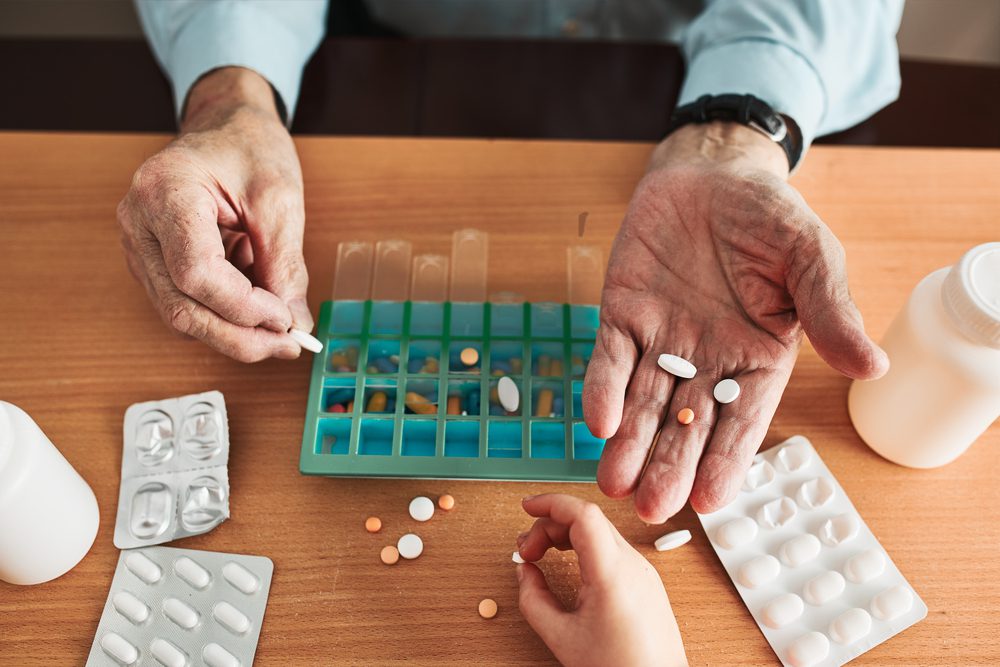Have You Been Having Issues With Memory Loss?
Have you looked everywhere, but you can’t find your keys? Arrived at the bottom of the stairs, not knowing why you went down there in the first place? You’re not alone! You’ve probably started experiencing memory loss.
Whether your memory issues are due to medical reasons or just some simple absent-mindedness on your part, there are many ways you can cope with this problem. Everyone forgets things every once in a while, but memory loss is not something to take lightly.
So, we’ve compiled a list of a few tips and tricks that could help you both at home and in social situations. You can easily adapt them to make them work for you. Just make sure to remain patient with yourself in the process.
Let’s look into 8 tips and tricks that help with memory loss!
Reduce Your Stress Levels
We get it. This particular tip on memory loss is easier said than done! But there’s actually extensive research on how stress can affect your ability to store and retrieve information. If we add some sort of disease or trauma to this, then your brain just completely shuts down.
This may sound obvious, but breathing is particularly important. The heart-to-brain communication system goes through the vagus nerve and the sympathetic afferents.
By controlling your breathing, you’ll be able to have more control over your brain and higher brain centers which impact storage, registration, and retrieval. A fitness tracker would be a great way for you to learn heart rate breathing.
This method won’t make the leaky roof go away. But, it’ll give you a way of coping better, which will, in turn, reduce your stress, allowing you to store and retrieve information more effectively.
Follow A Healthy Diet
What you eat can greatly affect your brain. And following an anti-inflammatory diet that’s high in Omega 3 and protein can really make a difference. For instance, The Mediterranean diet would perfectly suit your needs.
It puts a big emphasis on vegetables, fruits, whole grains, fish, unsaturated fats, and low amounts of red meat, eggs, and sweets. This diet is ideal for lowering high blood pressure, which is a risk for Alzheimer’s.
Let’s take a closer look at what exactly you should be eating if you’re experiencing memory loss:
- Leafy green vegetables, at least 6 servings per week
- Whole grains, 3 servings per day
- Berries, at least 2 servings per week
- Fish, 1 serving per week
- Beans, 3 servings per week
- Poultry, 2 servings per week
- Nuts, 5 servings per week
Have A System In Place
If you’ve noticed that you seem to be losing things often, try leaving them where they’re always visible and where you’ll see them until you do whatever needs to be done with them.
This could mean tactics like placing things that need to go upstairs at the bottom of your stairs, putting bills in a specific location until you’ve dealt with them, or simply always feeding your pet before making your own breakfast.
- It might help to assign tasks to a particular day of the week or combine activities you already do. For example, if you have a plant that needs to be watered once a week, water it on the same day you have trash pickup.
- We all know how valuable habits can be, so try using them to your advantage. Forming habits will help you get things done subconsciously, improving memory loss. This way, you’re not depending so much on your conscious mind to remember things. You can even tie a new habit to an old one, like taking your meds every time you brush your teeth.
- Create routines. Keep a journal of them, as well. Assign a specific place for your keys, so you don’t lose them. And each time you walk out the door, make sure they’re with you. The same goes for your wallet.

Be Aware Of What Type Of Prescription Medications You Take
This goes without saying, but if you’ve ever had any kind of brain injury, do NOT take any kind of medication that can impact your central nervous system unless it is absolutely necessary and your doctor has given you the OK. Every pill has some sort of side effects.
We suggest you take the medication only if the positive results outweigh the negative side effects. If you’re in extreme pain and need to take medication for it, just be aware that it WILL affect your memory. So which drug categories are we talking about exactly?
You’d be surprised at how many pills can cause memory loss. This includes steroids, sleeping pills, anti-anxiety drugs, antiepileptic drugs, tranquilizers, and even muscle relaxants, just to name a few.
Therefore, make sure you use prescription medication or herbal remedies with caution.
Cut Down On Your Caffeine Intake
This is a controversial subject because, for some people who go through memory loss, caffeine can sometimes HELP those with this issue to focus better.
But in the long run, it can cause something called adrenal exhaustion, which affects the retrieval of information to the brain. If cutting coffee out of your life is difficult for you, we recommend taking it slow, so you don’t stress yourself out in the process.
If you simply enjoy the TASTE of coffee, you can replace a few cups each day with decaf. You might not even be able to tell the difference!
Boost Your Confidence
It makes perfect sense that memory loss would have a lot to do with the level of confidence you have. If you BELIEVE that you have this problem, you likely will automatically, even if it isn’t true. It’s all about positive thinking.
On this note, the same applies to trying to remember something as well. If you were to lack confidence, it would eventually lead to circumstances where you forget the actual habit of remembering.
You can develop confidence by appreciating yourself whenever you recall something you usually tend to forget. And if it seems like a task is too complex for you, don’t try to do it if it’s just going to demoralize you in the end.
Social Interactions Can Help
Regularly interacting with people can help ward off stress and depression, both of which we already know can contribute to memory loss. Try to search for possibilities to get together with friends and loved ones and meet new people, especially if you happen to live alone.
It also helps keep your brain sharp by having to use it every day to interact with others. A study done on the elderly American population showed that social integration will delay memory loss.
Having trouble remembering someone’s name? Don’t stress out! Just greet them without using their name. It’s better than calling them by the wrong name.

Pay Attention
And speaking of greeting someone…A considerable amount of short-term memory loss can be attributed not so much to the brain’s ability but the capability of a person to focus on just one single task.
If you’ve already forgotten the name of that nice gentleman you met not five minutes ago, it might not be just a memory problem. Were you truly listening when you were introduced? Or were you thinking ahead about what to say next?
Try this: As you greet and shake hands with a person, look them in the eye and repeat back their name out loud. Afterwhich, say it to yourself silently a couple of more times.
It’ll help if you make an active effort to pay attention whenever you know you’re likely to forget something.
We hope you found our tips on memory loss helpful. Feel free to leave us a comment and let us know how they worked out for you.
And in the meantime, we also highly recommend reading: 11 Signs of Depression in Seniors and What You Can Do About It













